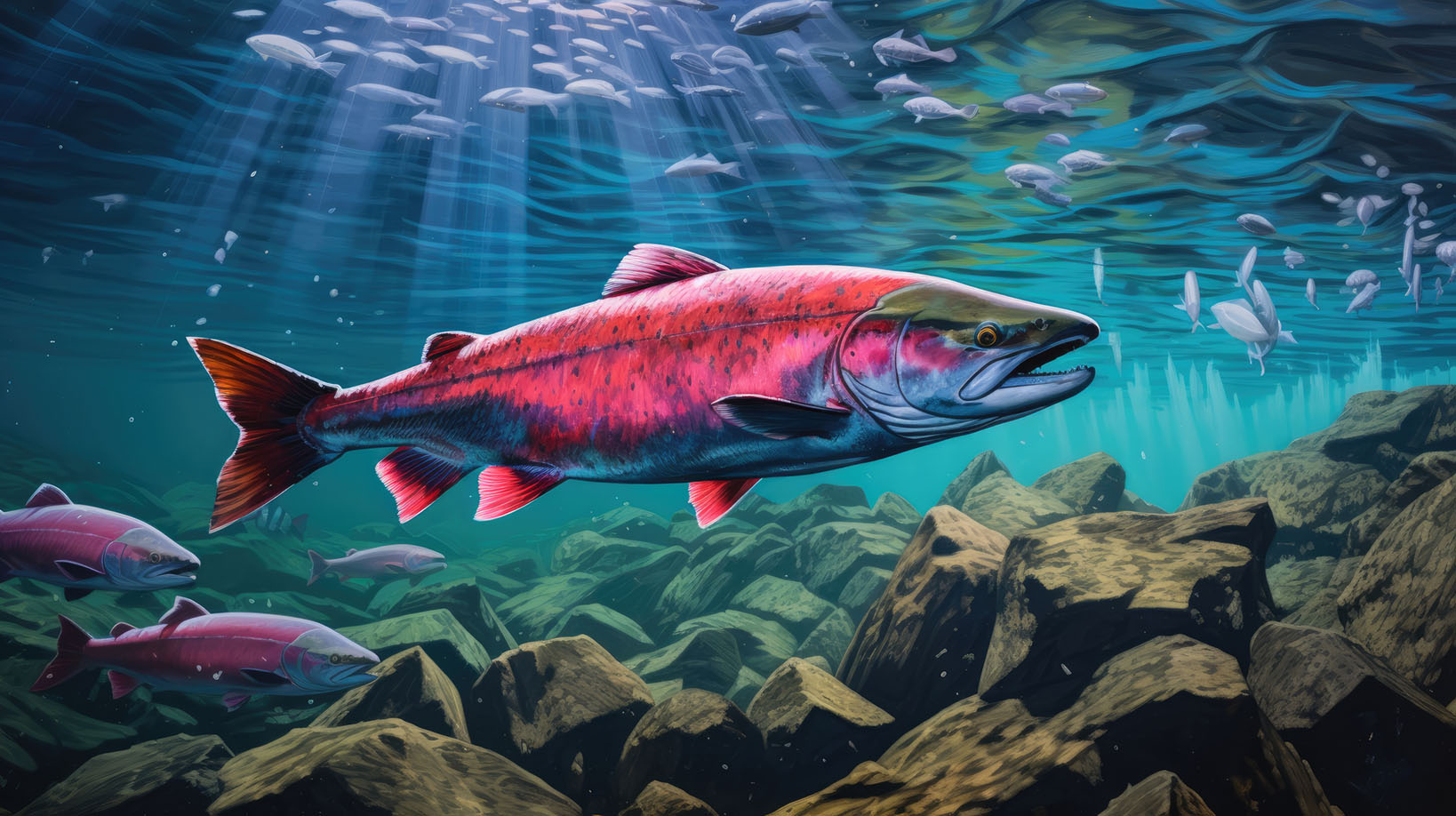The North Pacific Anadromous Fish Commission (NPAFC) established a new NPAFC Science Plan to build on previous international cooperative research conducted within the International Year of the Salmon (IYS). The primary goal of the 2023–2027 Science Plan is to: “Establish a research framework to develop a mechanistic understanding of the impact of changing climate on salmon abundance and distribution trends in the North Pacific Ocean.” The research objectives are to:
- Improve knowledge of the relative biomass, distribution, migration, and fitness of Pacific salmon in the ocean (Present Knowledge); and
- Understand causes and anticipate changes in the production of Pacific salmon and the marine ecosystems producing them (Forward Action).
Improved understanding of the mechanisms that regulate the distribution and abundance of Pacific salmon will promote the conservation of anadromous populations in the North Pacific Ocean, allow for better projections, or at least include realistic uncertainty given climate change, of Pacific salmon production trends in the future, and enhance sustainable fisheries management, food security, and economic security in member nations.
